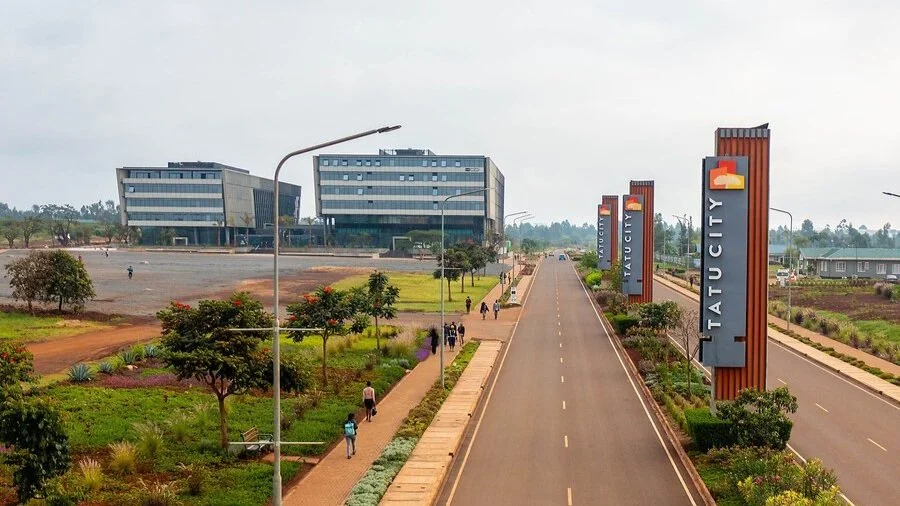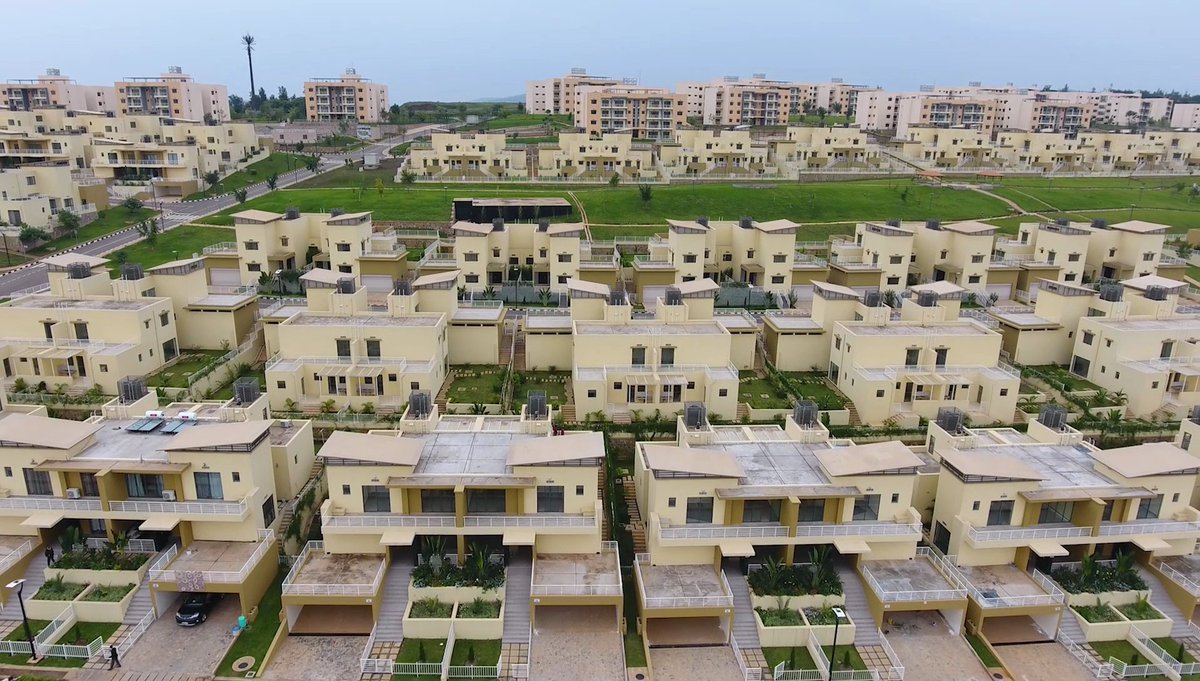Smart Cities & Tech Hubs in Africa: A Real Estate Investor’s Guide to Emerging Market Opportunities
Africa is rapidly transforming into a global frontier for smart city development and technology-driven urban planning. From the innovation corridors of Nairobi to the rising eco-districts of Kigali, the continent is witnessing a bold wave of infrastructure modernization, ICT expansion, and smart governance. For real estate investors, this transformation presents a high-growth, long-horizon opportunity to tap into Africa's urban future.
This blog post reviews Africa’s most promising smart cities and technology hubs and outlines how forward-thinking investors can position themselves in real estate assets that align with the continent’s digital and demographic leap.
Why Smart Cities in Africa Matter for Real Estate Investors
Urbanization is Unstoppable: By 2050, Africa's urban population is projected to triple. Cities are under pressure to house, move, and serve tens of millions of new residents. Smart city development is the chosen path for many governments seeking to leapfrog traditional infrastructure gaps.
Demographics Favor Demand: Africa has the youngest population in the world. Rising middle-class demand for housing, office space, retail centers, and digital infrastructure is fueling a once-in-a-generation real estate expansion.
Public-Private Partnerships (PPP): Governments are increasingly turning to the private sector to deliver housing, logistics parks, transit infrastructure, and mixed-use developments under long-term lease, joint venture, or REIT models.
Key Smart City Investment Hotspots
1. Konza Technopolis – Kenya
Located 64 km from Nairobi, Konza is Kenya’s flagship smart city and Africa’s version of Silicon Valley. The project spans over 5,000 acres and integrates residential zones, data centers, research institutions, and business parks. Key sectors include ICT, biotech, and education.
Investment angle:
Long-term potential in student housing, serviced apartments, and high-spec office blocks designed for tech tenants.
2. Kigali Innovation City – Rwanda
Kigali Innovation City is a 60-hectare mixed-use tech park that hosts Carnegie Mellon University Africa, startups, and regional headquarters. It is designed as a high-efficiency smart city with seamless ICT infrastructure and green planning.
Investment angle:
Strong demand for institutional housing, commercial office leasing, and green-certified retail developments near education centers and SEZs.
3. Eko Atlantic City – Nigeria
Built on reclaimed land off the coast of Lagos, Eko Atlantic is envisioned as a financial, residential, and commercial epicenter. It boasts its own power grid, digital utilities, and AI-managed traffic.
Investment angle:
High-end residential towers, luxury condominiums, and commercial buildings targeting the Nigerian diaspora and multinational corporations.
4. Tatu City –
Kenya
Tatu City is a privately funded smart city located on 5,000 acres just outside Nairobi. With residential areas, schools, industrial parks, and shopping zones, it has already attracted over 60 companies and 5,000 residents.
Investment angle:
Warehousing, logistics hubs, and build-to-rent multifamily housing for Nairobi’s growing middle-income earners.
5. Appolonia City – Ghana
Just 20 km from Accra, this 2,300-acre development features gated residential communities, business parks, and solar-powered infrastructure.
Investment angle:
Land banking, build-to-sell townhomes, and smart estate developments for young professionals seeking secure, tech-ready housing.
6. Centenary City – Nigeria
Positioned near Abuja, this Dubai-style master-planned smart city includes biometric security, smart grid utilities, and special economic zones.
Investment angle:
Joint ventures in residential towers and health-tech campuses under PPP frameworks.
7. Vision City – Rwanda
A model residential smart district in Kigali with over 4,500 housing units and integrated services like AI surveillance, waste management systems, and solar integration.
Investment angle:
Affordable and mid-income housing development as part of Rwanda’s smart city expansion for urban middle-class families.
8. Sherbro Eco-City – Sierra Leone
An eco-smart city planned for Sherbro Island, spearheaded by public-private partnerships with diaspora involvement and sustainability at its core.
Investment angle:
Eco-resorts, modular housing, and diaspora-funded mixed-use projects for tourism, leisure, and residency.
Leading ICT Hubs Supporting Smart Cities
Smart cities don’t stand alone—they’re powered by vibrant innovation ecosystems. Africa boasts over 600 technology hubs, many anchored in cities where smart development is underway.
Top tech hubs include:
iHub (Nairobi, Kenya) – East Africa’s startup nucleus.
CcHub (Lagos, Nigeria) – West Africa’s largest tech incubator.
HiveColab (Kampala, Uganda) – Uganda’s pioneering innovation space.
MEST Africa (Accra, Ghana) – Software entrepreneur training across the continent.
Kigali Innovation City (Rwanda) – Academic and tech R&D convergence zone.
Silicon Mountain (Buea, Cameroon) – A grassroots tech ecosystem tied to academia.
These hubs are catalysts for demand in co-working spaces, tech parks, student housing, and digital nomad accommodations.
Kampala: Uganda’s Smart City Prototype
Uganda, through the Kampala Capital City Authority (KCCA), has launched a smart city initiative combining infrastructure upgrades, tech-enabled governance, and citizen participation. Kampala is part of the Africa Smart Towns Network (ASToN) and has introduced smart bus services (e.g., Tondeka), waste-to-energy pilots, and digital public service platforms.
Investment angle:
Real estate projects aligned with urban transit (TOD), mixed-use complexes near smart bus terminals, and co-living spaces for gig workers and students.
Strategic Entry Points for Investors
Land Acquisition in SEZs and Tech Parks
Early-stage parcels near planned innovation cities offer high upside for developers and diaspora investors.Affordable Housing Developments
Public-private frameworks across Kenya, Rwanda, and Ghana are seeking investors in smart, affordable homes.Real Estate Investment Trusts (REITs)
Several countries are introducing or refining REIT frameworks to attract diaspora capital and institutional investors.Joint Ventures with Local Governments
Smart cities rely on PPPs—foreign capital is welcomed, especially in infrastructure, utilities, and housing delivery.Diaspora Investment Funds
Diaspora-led funds are emerging as a powerful mechanism to pool capital for strategic real estate plays in home countries.
Final Thoughts
Investing in Africa’s smart cities and tech hubs is more than a property play—it is a long-term bet on demographic growth, urban modernization, and digital transformation. These urban zones are becoming magnets for capital, talent, and innovation. Real estate developers, institutional investors, and diaspora partners have a golden window to shape these cities—and profit from the continent’s urban renaissance.
Ntare Consulting and Finance stands ready to guide investors through feasibility studies, market entry strategies, PPP negotiations, and diaspora fund structuring. Africa’s smart city revolution has begun. The question is not if you should invest—but where.
For more information or to explore joint ventures, real estate funds, or PPP models in Africa’s smart cities, contact the Ntare Consulting and Finance team today.









